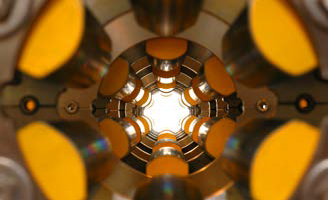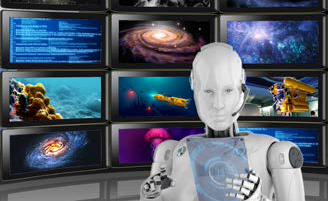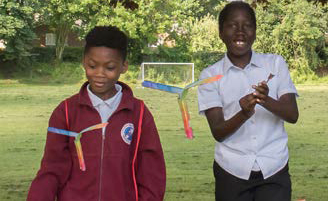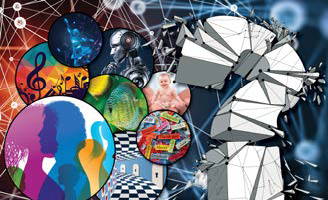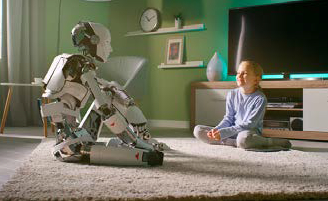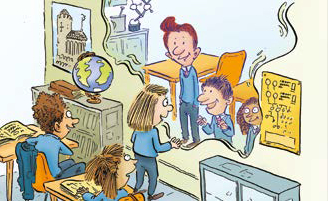This webpage is designed to support our funding application, Algorithms in Space: What is the Future of Knowledge in Astronomy now we have AI?

Can a robot see the beauty in a sunset? Can artificial intelligence appreciate a deeper level of order in the universe than the patterns that we’ve been able to find? What is the future of knowledge when experts from science and AI come together to talk about the questions that interest them?
This project will benefit from the experiences and expertise we have gained by organising an ‘Astronomy and AI’ summer school:
Astronomer, Dr Marc Sarzi helped us to appreciate that a space telescope gathers far more data than can be sent back to earth. Further, the role of deciding what to send to Earth is made by an AI. The idea that an AI on a space telescope can be the vision and limitations that shapes our curiosity in space became the project that we asked our summer school participants to consider:
The project we are proposing for funding straddles four science centres: Armagh Observatory and Planetarium, Kwame Nkrumah University, Copperbelt University and Canterbury Christ Church University. The activities are then led by one or another institution with dialogue and review from others. The projects and some of the opportunities for dialogue are below


One of our recent articles:
Can a robot be a scientist? Developing students’
epistemic insight through a lesson exploring the
role of human creativity in astronomy
Artificial intelligence is transforming the practice of science worldwide. Breakthroughs in machine learning are enabling, for example, the discovery of potentially habitable exoplanets beyond our solar system. The growing role of artificial intelligence (AI) in science raises questions for scientists, philosophers, computer scientists … and educators. How will the scholarship and practice of science education respond to the growing role of artificial intelligence in science? Questions like ‘Can a robot be a scientist?’ can help stimulate students’ epistemic curiosity, about the nature of scientific knowledge, including the value and importance of apparently uniquely human attributes such as creativity. In this article we explain the development and delivery of a science lesson using the question ‘can a robot be a scientist?’ to explore the role of human creativity in scientific observation and classification, using resources and activities created for the citizen scientist project ‘Galaxy Zoo’
Read the full article: https://iopscience.iop.org/article/10.1088/1361-6552/ac9d19
